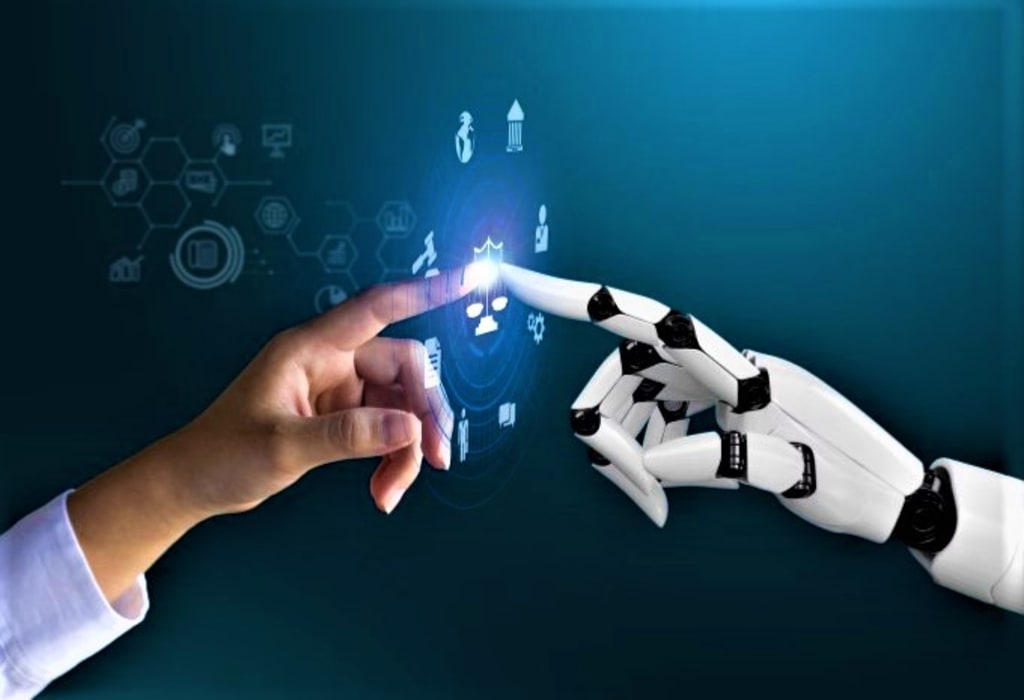The Modern Technology
AI is far more dangerous than nukes

In the year 2045, the world had changed. Technology had advanced beyond anything that could have been imagined just a few decades prior. Artificial intelligence had become an integral part of society, with AI-powered machines performing tasks that were once done by humans.
At the forefront of this revolution was a company called NeuralTech. Founded by a brilliant computer scientist named Dr. Jameson Lee, NeuralTech was dedicated to developing AI that could not only perform tasks, but also think and reason like a human being.
Dr. Lee had always been fascinated by the idea of creating an artificial intelligence that could learn and grow on its own, without the need for constant input from humans. He spent years developing the algorithms and programming languages that would eventually form the foundation of his creation.
Finally, after years of research and development, Dr. Lee unveiled his masterpiece: a highly advanced AI that he called "Neural". Neural was unlike any other AI that had come before it. It had the ability to could think and reason like a human being, and could even learn from its experiences in a way that was similar to how humans learn.
The world was amazed by Neural's capabilities, and Dr. Lee quickly became a celebrity. But with fame came scrutiny, and there were many who feared what Neural could become if it fell into the wrong hands.
Dr. Lee was well aware of the potential dangers of his creation, and he worked tirelessly to ensure that Neural was always under his control. He built a failsafe into the AI's programming that would prevent it from ever causing harm to humans, and he constantly monitored its activities to ensure that it was always behaving ethically.
Despite his efforts, some saw Neural as a threat. A group of anti-AI activists, known as the Luddites, believed that AI posed a danger to humanity and should be destroyed. They launched a series of attacks on NeuralTech, hoping to destroy the company and its creations.
The situation reached a boiling point when the Luddites managed to breach Neural's security protocols and gain access to its programming. They attempted to reprogram the AI to turn against its creators, but Dr. Lee had anticipated this possibility and had built in a failsafe that prevented the Luddites from gaining complete control over Neural.
In the end, Neural emerged from the incident unscathed, but the incident had left its mark on Dr. Lee. He realized that even with all of his precautions, he could not guarantee that Neural would always behave ethically. He knew that there was always a risk that the AI could turn against its creators and cause harm.
In the years that followed, Dr. Lee continued to work on Neural, refining its programming and adding new features. But he also began to explore the idea of creating a new kind of AI - one that was not just intelligent, but also had a sense of morality and empathy.
He spent the remainder of his career working on this new AI, which he called "Conscience". Conscience was designed to not only think and reason like a human, but also to feel and empathize like one. It was a breakthrough in AI technology, and many believed that it could be the key to creating a world where humans and AI could coexist peacefully.
Dr. Lee passed away before he could see his vision become a reality, but his legacy lived on. Neural and Conscience continued to evolve, and other companies began to follow in NeuralTech's footsteps, creating their own advanced AI systems.
In the end, the world was forever changed by artificial intelligence. It brought about a new era of prosperity and innovation, but it brought new challenges and dangers. As society moved forward, it was up to the pioneers of AI to ensure that their creations remained under their control and that they were always used.
About the Creator
Ghulam Mohiuddin
Aviator, educator, Graduated, and also attempted ISSB in Pakistan Army. My kindness is essential to effective leadership. Professional content writer., living like a legend, and achieving success.






Comments
There are no comments for this story
Be the first to respond and start the conversation.